Old and digitally unsavvy: China's elderly bearing brunt of the digital divide
As China embraces the digital age where smartphones are an integral part of life, one group seems to be left behind - the elderly, who generally need help to use apps for everyday activities. While the government does have some mitigating measures in place, are they enough?
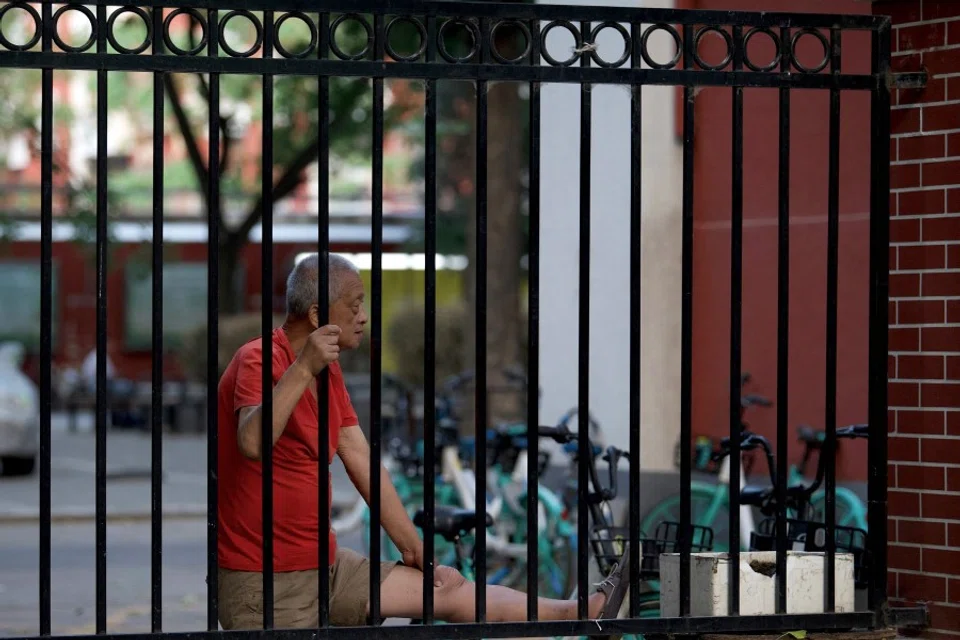
Technology in China is developing at breakneck speed and encroaching on every aspect of life. However, the elderly who can't keep up are unable to enjoy the convenience that technology brings. In fact, their daily lives may be upended.
On 22 June, People's Daily ran a commentary that said: "Many elderly are not so good at going online and using smartphones, and face inconvenience in their daily life when they go out, when they see the doctor, when making purchases... the elderly are facing an increasingly obvious 'digital divide'."
The issue of the digital divide is even more pressing as tech-based pandemic controls become normalised. Now, even buying noodles to celebrate one's birthday can be difficult.
Elderly woman in her 90s turned away from buying noodles
From reports in The Paper, guancha.cn and other media, Grandma Wang - a resident of Jing'an district in Shanghai - had her 91st birthday on 18 June. She went out alone to buy some handmade noodles and pork ribs to cook for her birthday.
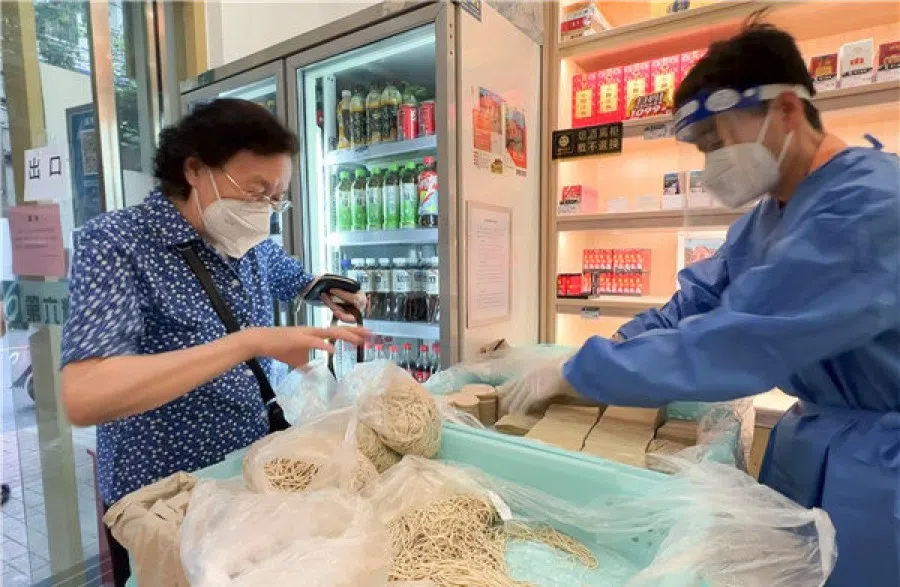
The elderly lady is not familiar with using a smartphone as she does not go out often and is not in the habit of bringing a mobile phone with her. Every day at about 7am, she queues up at No. 6 Oil and Grain (第六粮油食品店) convenience store opposite her home to buy noodles; she's a regular customer at this household name which sees long queues before it opens.
An observer described: "An old woman (she looked about 80 or so) clutching a crumpled 10 RMB note, saying it was her birthday and she wanted to buy a 2 RMB serving of noodles, but could not scan a QR code to enter because she had no mobile phone, and the staff said they could not let her make the purchase. The old woman asked if her identity card would do, but the answer was still no. Looking at her, all bent over, I thought - how many more birthdays will she have?"
Grandma Wang told reporters that as she could not buy noodles and there was a queue behind her, she left the shop. An elderly man said he could buy the noodles for her, but on scanning the QR code it turned out that his last negative Covid-19 test has expired, and so he was also unable to make the purchase. "If it's so troublesome to buy it, then forget it," Grandma Wang said. The two spoke for a while before going their separate ways.
"Couldn't the staff bring the item out to the elderly? We will all grow old sometime."
Grandma Wang did not go far before bumping into a neighbour in an alley opposite the main road, an elderly man in his 60s. He asked her what happened, and later bought her the 2 RMB noodles.
Grandma Wang thought the matter was over; she did not expect so many people to know about the incident after it was posted online. "The people on the street, residents' committee, the neighbours, they all look after me," she said. They helped me to set up my mobile phone so that I can go out. Such good people... it's not easy for them, I feel so bad."
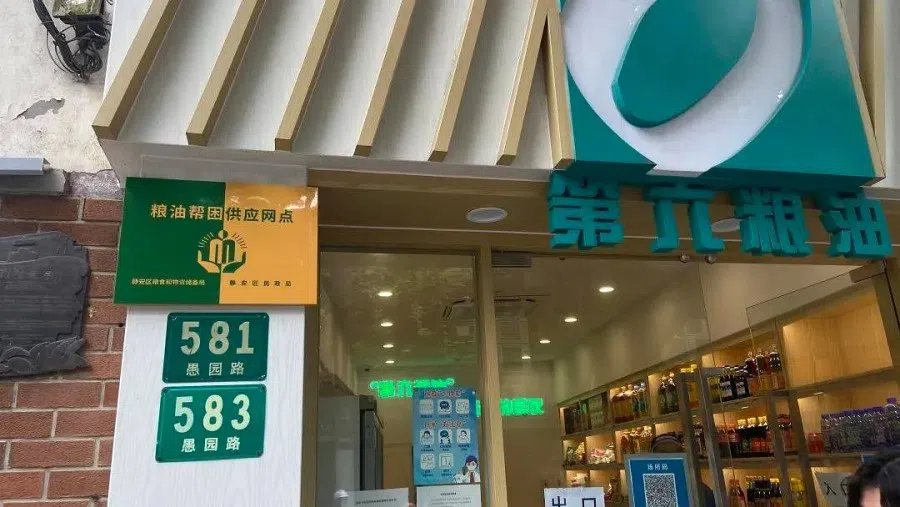
On Weibo, several netizens criticised No. 6 Oil and Grain: "Couldn't the staff bring the item out to the elderly? We will all grow old sometime." Many also felt that amid the pandemic, everyone has their hands tied. They lamented, "What can the store do? If people can get inside without scanning, the store would be closed down, cleaned up and fined; and if an outbreak results, the operator might be detained.
"No one is to blame for this. It's tough for everyone. The staff does not have the authority to override the pandemic policies."
...the driver says: "Get down and get it working, and then get back on."
The elderly in China who are not able to make the leap
While Grandma Wang got the noodles she wanted in the end, not all the elderly are as lucky. Recently, a heartrending video clip taken on the morning of 2 June showed a white-haired elderly man struggling with his mobile phone on the bus for two minutes because he did not know how to scan the QR code for public transport.
In the video, the elderly man takes out his phone and tries to "open WeChat and scan", as requested by the driver. But he is not familiar with how it works and tells the driver: "I don't know how to use this phone."
The driver gets a little edgy and rushes him: "People are waiting for you." And when the elderly man still cannot scan the code, the driver says: "Get down and get it working, and then get back on." The hapless elderly man says, "I won't hold everyone up," and quietly gets off.
"Going digital is not about using smartphones for everything; it should be about being idiot-proof and hassle-free."
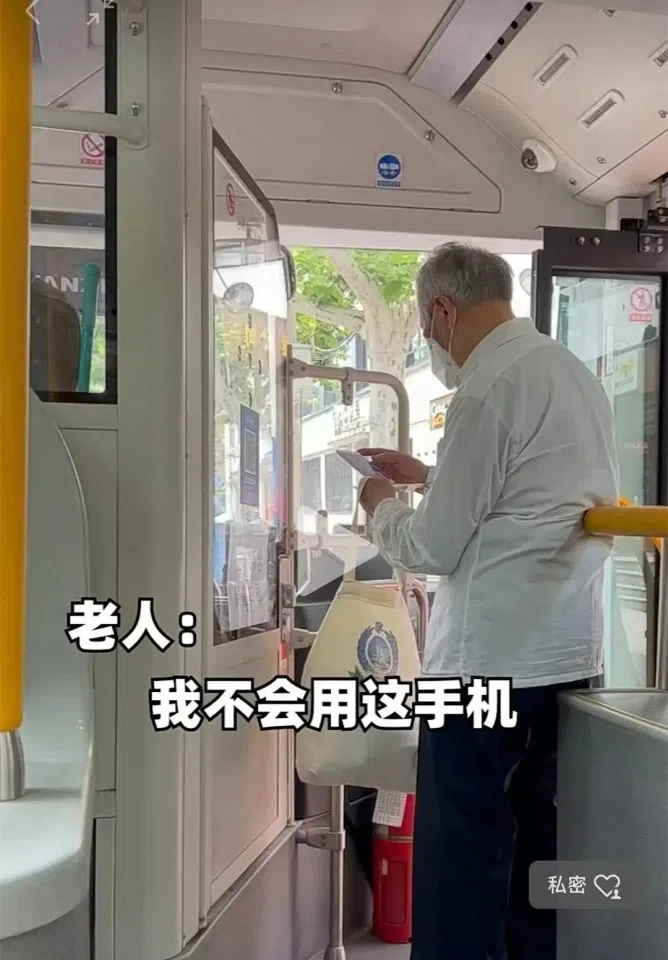
One netizen lamented: "This code, that code... it's annoying. Even young people are confused, what more the elderly!" Another criticised: "After shouting for so long about going digital and big data, with our identification cards linked to our transport cards, why do we still have to scan a code when taking public transport? Going digital is not about using smartphones for everything; it should be about being idiot-proof and hassle-free."
Actually, there have always been cases of the elderly getting stuck because they do not know how to use a smartphone - with the pandemic normal, there are more steps in daily life that require using a smartphone, which makes things more difficult for the elderly.
Measures to make things easier for the elderly
That said, with the relaxed measures, they can now go out and be seen and heard; passers-by might help them if they get stuck, or their plight might be posted online and gain attention. Previously, under strict control measures, if the elderly who live alone do not know how to go online, it would be impossible for them to make online purchases, and nobody would know if they faced problems.
Clearly, the elderly cannot avoid contact with technology, and may still need others to help them get their "offline code".
In fact, many local governments in China are aware of the difficulties faced by the elderly, and have rolled out solutions. Going back to the case of Grandma Wang, the staff at No. 6 Oil and Grain did ask if she managed to get her hard copy "offline code" (离线码), a measure to remove the "digital divide" and make things easier for the elderly.
If an elderly person does not know how to use a smartphone, they can print an "offline code" and bring it with them to allow staff to scan it when they enter a venue, to verify their identity and health status.
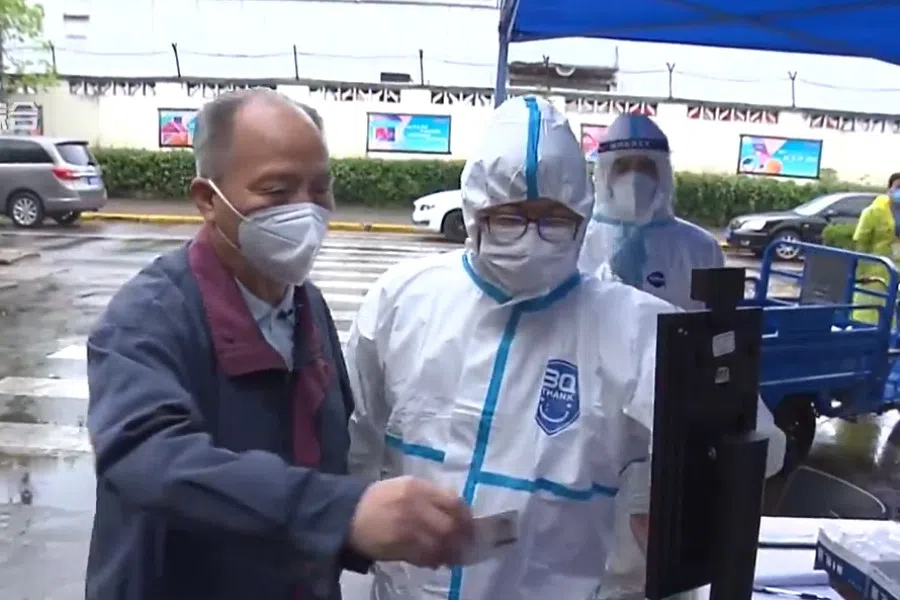
But to get the "offline code", the elderly have to go to an offline self-service terminal to apply and print it out, and it is valid for 180 days. If they lose the code, they have to report the loss on a centralised online government system - whether at a dedicated computer terminal or through a mobile app - and then go to another offline self-service terminal to collect a new code. Clearly, the elderly cannot avoid contact with technology, and may still need others to help them get their "offline code". Of course, this is a one-time action, that is easier than scanning a code all the time.
In fact, in November 2020, the General Office of the State Council released a document on resolving difficulties faced by the elderly in using smart technology. It suggested specialised training for industry training organisations and professionals to address the capabilities of the elderly in using smart apps, and encouraged vendors to design and produce simple user manuals and video tutorials for product functions commonly used by the elderly.
Perhaps the authorities can do more, such as providing more training, and considering whether the elderly can adapt...
Many large internet companies include elderly-friendly settings or modes when designing their products. For example, food delivery app Ele.me has an "elderly mode". Besides apps, mobile phone brands like Huawei, Xiaomi, OPPO and Vivo have similar simplified modes, with large fonts, bright colours and simple functions, so that the elderly can easily use them.
These measures by the vendors are to expand their user base, but do in fact lower the threshold for the elderly to grasp the technology. Only thing is, the effects of these product improvements are limited, and a lower threshold does not mean no threshold.
Perhaps the authorities can do more, such as providing more training, and considering whether the elderly can adapt before coming up with any tech-related policies, and offering simple and convenient solutions.
More people facing digital divide as population ages more rapidly
Even amid rapid technological development, China's population is also ageing, and an increasing number of people will face the digital divide.
According to the 7th census released by the National Bureau of Statistics last year, there are 264 million people aged 60 and above, or 18.70% of the population, up by 5.44 points from ten years ago - this means that out of about every five Chinese, one is an elderly person.
... as society becomes increasingly "smart", not being able to grasp basic technology is as good as being isolated.
Last year, former director of the National Bureau of Statistics Ning Jizhe said China's ageing population was getting more pronounced, and China would feel the pressure of balanced population growth for some time to come.
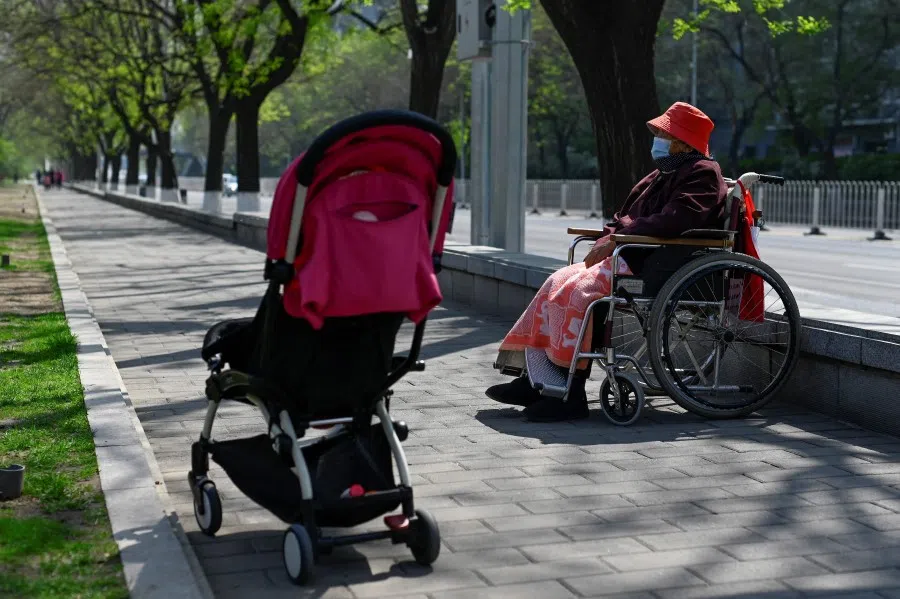
An ageing population brings diverse issues, such as a smaller workforce and a burden on the healthcare system. With these major issues, whether the elderly know how to use smartphones may seem less than urgent. But as society becomes increasingly "smart", not being able to grasp basic technology is as good as being isolated. Ren Yuan, a professor with the School of Social Development and Public Policy at Fudan University, noted that if the elderly do not know how to use mobile internet apps and cannot access digital services, they will be increasingly cut off by the digital-era society.
In the movie The Shawshank Redemption, the character Brooks Hatlen spends most of his life in prison. He is released as an old man to a completely different world; the technology, civilisation and social habits around him make him feel uncomfortable, anxious and useless. In the end, he kills himself.
Helping the elderly cross the digital divide goes beyond making it more convenient for them to buy noodles and ride the bus - it also prevents them from being left behind by society and time, and feeling lost in their twilight years.





